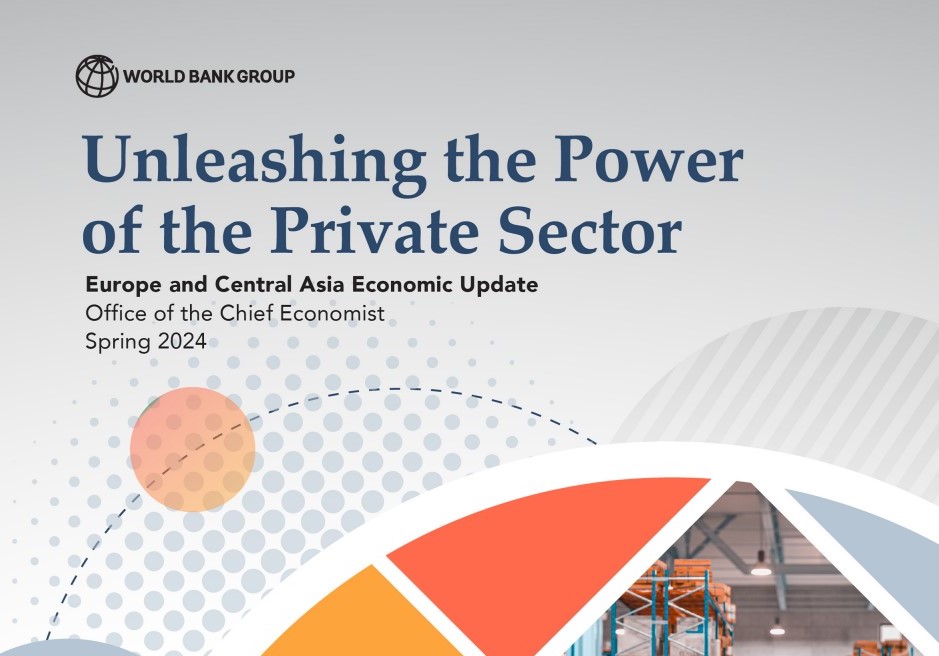
Europe and Central Asia Economic Update, Spring 2024
The World Bank (WB) analyzed the prospects for economic development in Europe and Central Asia.
Experts expect a slowdown in economic activity in the region. According to World Bank estimates, economic growth in the region will be 2.8% in 2024 (3.3% in 2023) and 2.6% in 2025. The level of inflation, which became the main reason for the decline in consumption and living standards in 2022 fell to 4.2% in February 2024 from a peak of 16% in September 2022. Despite the decline in inflation, price levels are higher than in 2018–2019. by 40%.
In 2023, the Russian economy grew by 3.6% due to a sharp increase in government spending, which ensured growth in social benefits, wages and investment in the military-industrial complex, manufacturing and construction. Economic indicators are projected to decline to 2.2% in 2024 and 1.1% in 2025.
Among the main economic risks of the regional economy is a muted recovery of economic growth in countries that are key trading partners, incl. in China, tightening monetary policy and aggravating geopolitical contradictions. In turn, institutional and market reforms and the active introduction of technology and innovation can become drivers of the region’s economic development. Experts recommend focusing on increasing the transparency and investment attractiveness of the business environment, reducing the state in economic life, improving the quality of education and financial inclusion.



